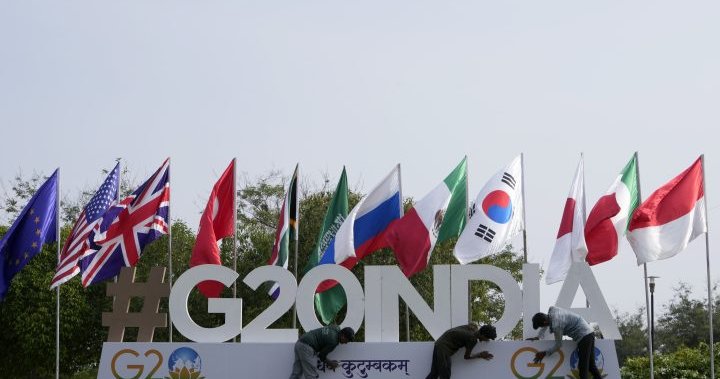
G20 environment ministers to meet amid record heat. Can Canada lead the way?
Global News
The meeting comes just days after Canada became the first G20 country to roll out a plan to phase out 'inefficient' fossil fuel subsidies.
When the environment ministers of the G20 nations meet in Chennai, India on Friday, they will be capping off what’s set to be the hottest month on record for Earth. Analysts say the meeting will set the tone for the COP28 summit in November this year and that Canada has the chance to lead the way.
The G20 nations comprise some of the world’s biggest polluters, including Canada, the United States, China and India. Together, this group accounts for 78 per cent of global greenhouse gas emissions. The meeting comes just days after Canada became the first G20 country to roll out a plan to phase out “inefficient” fossil fuel subsidies.
“This meeting is happening during unprecedented climate events across the world. We really need progress on climate action. The G20 ministers need to meet this moment,” said Pratishtha Singh, senior policy analyst at Climate Action Network Canada.
According to Indian media reports, the environment ministers are likely to discuss climate mitigation, adaptation and climate finance. Hindustan Times, a leading Indian daily, also reported that the G20 communique was likely to outline the G20’s expectations for the upcoming COP28 summit in Dubai.
Environment Minister Steven Guilbeault reached India on Tuesday to attend the summit.
“Minister Guilbeault is in India to strengthen global cooperation on climate, biodiversity, and pollution alongside Indian and international partners. Together, we’re committed to building a healthier planet for all,” Environment Canada said in a statement.
A day before he left for India, Guilbeault released a framework to review and phase out inefficient fossil fuel subsidies. Canada is the first G20 country to roll out such a plan.
Under the framework, unless a fossil fuel company significantly reduces greenhouse gas emissions, supports Indigenous participation, offers essential energy services to remote communities, provides short-term support for an emergency or supports projects that include carbon capture, their subsidies would be deemed “inefficient” and phased out.













